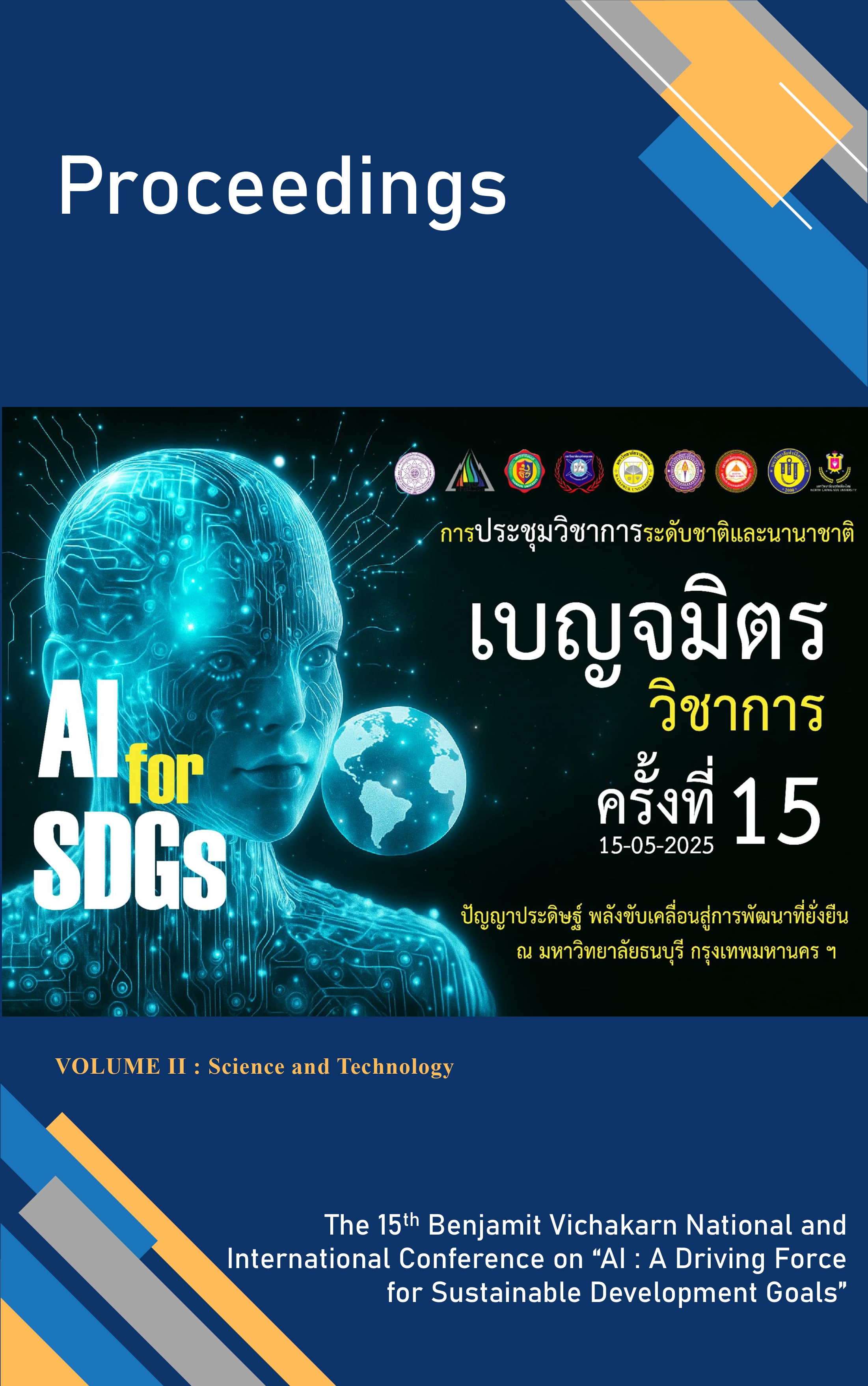การออกแบบและพัฒนาบอร์ดเกม “ชีวิตดีๆที่ลงตัว” เพื่อเสริมสร้างการเรียนรู้เกี่ยวกับสังคมไทย
เนื้อหาบทความหลัก
บทคัดย่อ
ในปัจจุบัน สังคมไทยโดยเฉพาะในเขตเมืองอย่างกรุงเทพมหานครกำลังเผชิญกับปัญหาที่มีความซับซ้อนทั้งด้านเศรษฐกิจ สังคม การเมือง และวัฒนธรรม ซึ่งส่งผลกระทบต่อคุณภาพชีวิตของประชาชน โดยเฉพาะกลุ่มเยาวชนและนักศึกษา ซึ่งมักขาดความเข้าใจที่ลึกซึ้งเกี่ยวกับบทบาท หน้าที่ และผลกระทบของปัญหาดังกล่าวต่อชีวิตจริง การจัดการเรียนรู้แบบเดิมที่เน้นการบรรยายหรือการอ่านจากเอกสารเพียงอย่างเดียวอาจไม่เพียงพอในการสร้างการตระหนักรู้และทักษะที่จำเป็นในศตวรรษที่ 21 ดังนั้น งานวิจัยนี้จึงมีจุดมุ่งหมายในการออกแบบและพัฒนาบอร์ดเกม "ชีวิตดีๆ ที่ลงตัว" ให้เป็นเครื่องมือการเรียนรู้รูปแบบใหม่ที่สามารถจำลองสถานการณ์ทางสังคม และเปิดโอกาสให้ผู้เล่นได้ฝึกคิด วิเคราะห์ วางแผน และตัดสินใจในบริบทที่ใกล้เคียงกับชีวิตจริง เพื่อเสริมสร้างความเข้าใจต่อปัญหาสังคมไทยและปลูกฝังแนวคิดในการวางแผนชีวิตอย่างมีความรับผิดชอบผ่านการเล่นเกมอย่างมีความหมายการวิจัยครั้งนี้มีวัตถุประสงค์เพื่อออกแบบและพัฒนาบอร์ดเกม “ชีวิตดีๆ ที่ลงตัว” ซึ่งเป็นเกมกระดานรูปแบบการ์ดที่ใช้สำหรับส่งเสริมการเรียนรู้เกี่ยวกับสังคมไทย โดยเน้นบริบทของกรุงเทพมหานครในช่วงที่ผ่านมา เป็นการวิจัยเชิงคุณภาพ (Qualitative Research) ที่นำข้อมูลจากการศึกษาปัญหาทางเศรษฐกิจ สังคม และวัฒนธรรมของประเทศไทยมาวิเคราะห์และถ่ายทอดในรูปแบบเกม โดยมีเป้าหมายเพื่อให้ผู้เล่นเกิดความตระหนักรู้ในบทบาท หน้าที่ และความรับผิดชอบต่อสังคม ผ่านการเล่นเกมที่จำลองสถานการณ์ต่าง ๆ เสมือนชีวิตจริง
กระบวนการวิจัยประกอบด้วยการวิเคราะห์เอกสาร การออกแบบเกมโดยใช้แนวคิด Experiential Learning และ Game-Based Learning การออกแบบการ์ดเกม 3 ประเภท ได้แก่ การ์ดตัวละคร การ์ดเหตุการณ์ และการ์ดตัวช่วย การสร้างกลไกการเล่นที่สอดคล้องกับการเรียนรู้เชิงประสบการณ์ การออกแบบองค์ประกอบทางกราฟิกที่สะท้อนอัตลักษณ์ของกรุงเทพฯ และการนำต้นแบบเกมไปปรึกษาผู้เชี่ยวชาญด้านบอร์ดเกมเพื่อปรับปรุง ก่อนนำไปทดลองใช้จริงกับกลุ่มตัวอย่างโดยใช้วิธีการสุ่มตัวอย่างแบบเจาะจง (Purposive Sampling) สำหรับนักเรียนและนักศึกษา จำนวน 50 คน จากงาน Open House 2025 มหาวิทยาลัยธนบุรี โดยใช้การสังเกตและแบบสอบถามเป็นเครื่องมือในการเก็บข้อมูลจากการทดลองนำบอร์ดเกม “ชีวิตดีๆที่ลงตัว” มาทดลองเล่นภายในงานกิจกรรมที่กล่าวมา
ผลการวิจัยพบว่า ผู้เล่นมีความพึงพอใจต่อรูปแบบเกมในระดับมาก โดยเฉพาะด้านความสนุก ความเข้าใจง่าย และคุณภาพของงานออกแบบ ขณะเดียวกันผู้เล่นสามารถเชื่อมโยงเนื้อหาในเกมกับสถานการณ์ในชีวิตจริง และเกิดการสะท้อนคิดในแง่ของบทบาททางสังคม ทักษะชีวิต และความยากง่ายในการใช้ชีวิตในบริบทเมืองหลวง ข้อเสนอแนะจากผู้เล่นสะท้อนถึงความจำเป็นในการปรับสมดุลของตัวละครบางประเภท และการปรับความชัดเจนของกติกาบางส่วนโดยสรุป บอร์ดเกม “ชีวิตดีๆ ที่ลงตัว” เป็นเครื่องมือการเรียนรู้ที่มีศักยภาพในการส่งเสริมความเข้าใจปัญหาสังคมไทยในรูปแบบที่สนุก เข้าถึงง่าย และกระตุ้นให้ผู้เล่นได้เรียนรู้ผ่านประสบการณ์และปฏิสัมพันธ์อย่างมีความหมาย

